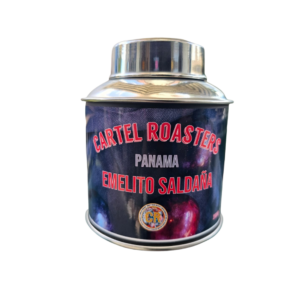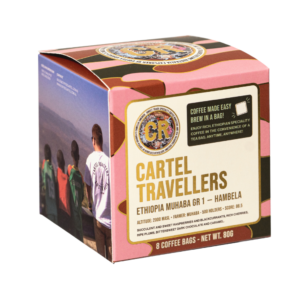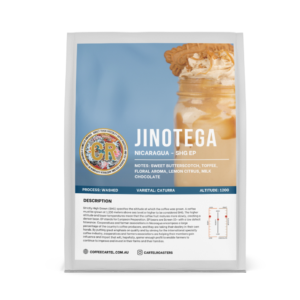About this coffee
- Altitude: 1900
- Farmer: AMARO
- Score: 86.5
- COUNTRY: ETHIOPIA - YIRGACHEFFE
NOTES: JASMINE FLORALS, RASPBERRY, BLACKBERRY, PLUM AND CASCARA WITH A COATING TOFFEE FINISH.
Grown and processed in the Aramo Keble of the Yirgacheffe Woreda, this coffee has been harvested from 800 farmers in the area. Coffee plantations span 1600 hectares throughout the region, with each producer farming on average 2 hectare plot. Most farmers cultivate local heirloom varietals and harvest from plantations at an altitude of 1800-2000 MASL. The regions produces both washed and natural coffees. Yirgacheffe is known for its distinctive floral and fruity coffees. A combination of superior climatic conditions, wild heirloom varietals and unwavering dedication from producers; make the region perfect for growing coffee. It is world renowned for its clean and sweet cup profiles.
Coffee still grows wild in Ethiopia’s mountain forests. Ethiopian farmers cultivate coffee in four different systems, which include forest coffee, semi-forest coffee, garden coffee and plantation coffee. About 98% of the coffee in Ethiopia is produced by peasants on small farms and it is the country’s most important export. Ethiopia is Africa’s third largest coffee producer. There are about 700,000 coffee smallholders in Ethiopia, of which 54 percent are in semi forest areas. Coffee has been part of their indigenous cultural traditions for more than 10 generations.
Coffee is traded on the Ethiopian Commodities exchange (ECX) which unique to many other countries sets its own prices. Ethiopia Produced 7.1 Million Bags of Coffee in 2017-2018. Most Ethiopian Coffee goes to Germany and Saudi Arabia (about 20% Each) while Australia takes 2%. While most coffee does go through the ECX, reforms recently passed by the government have allowed larger farms and co-ops to market and sell their coffees directly to consumers, resulting in increased traceability and fairer pricing
[jgm-review-widget]





